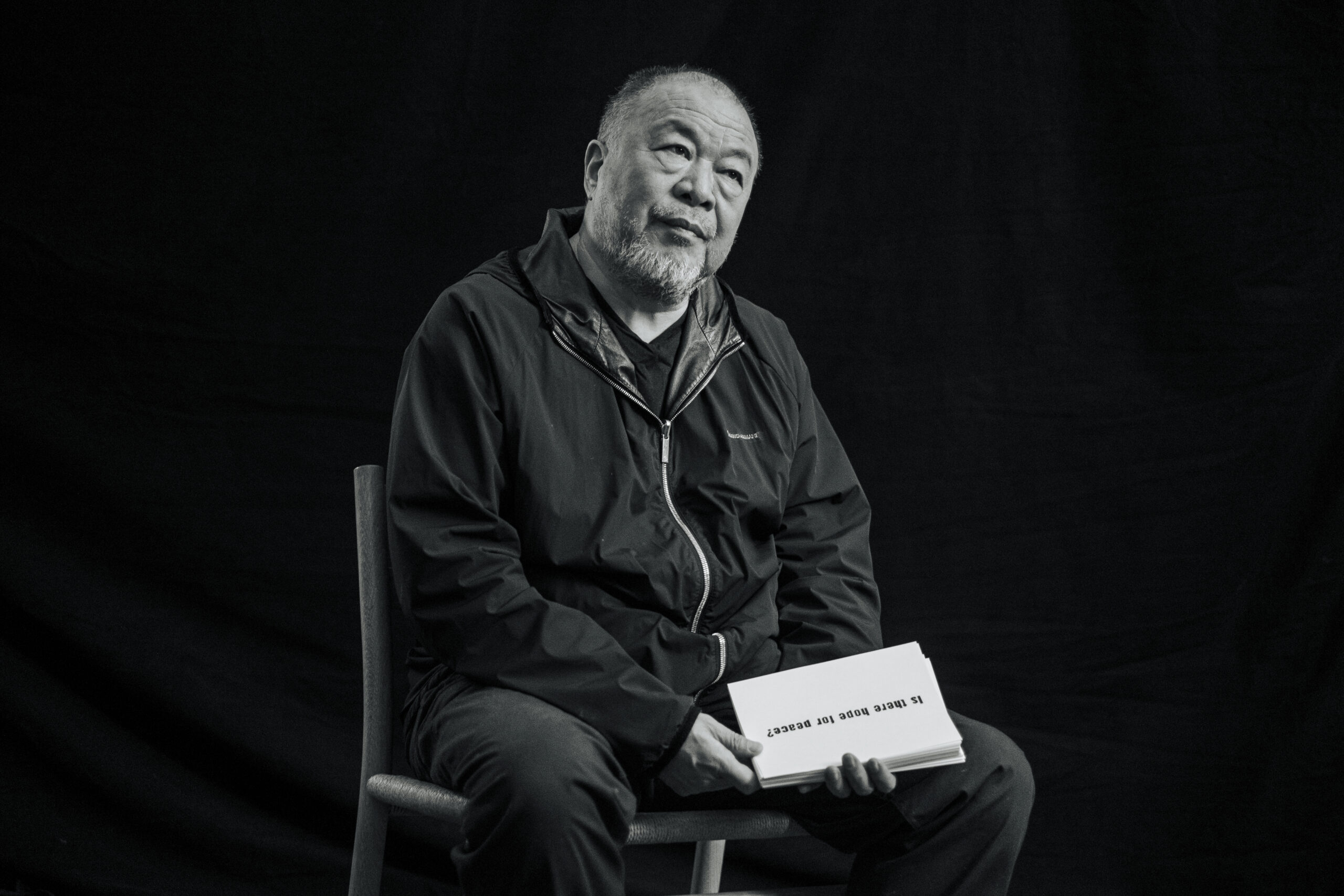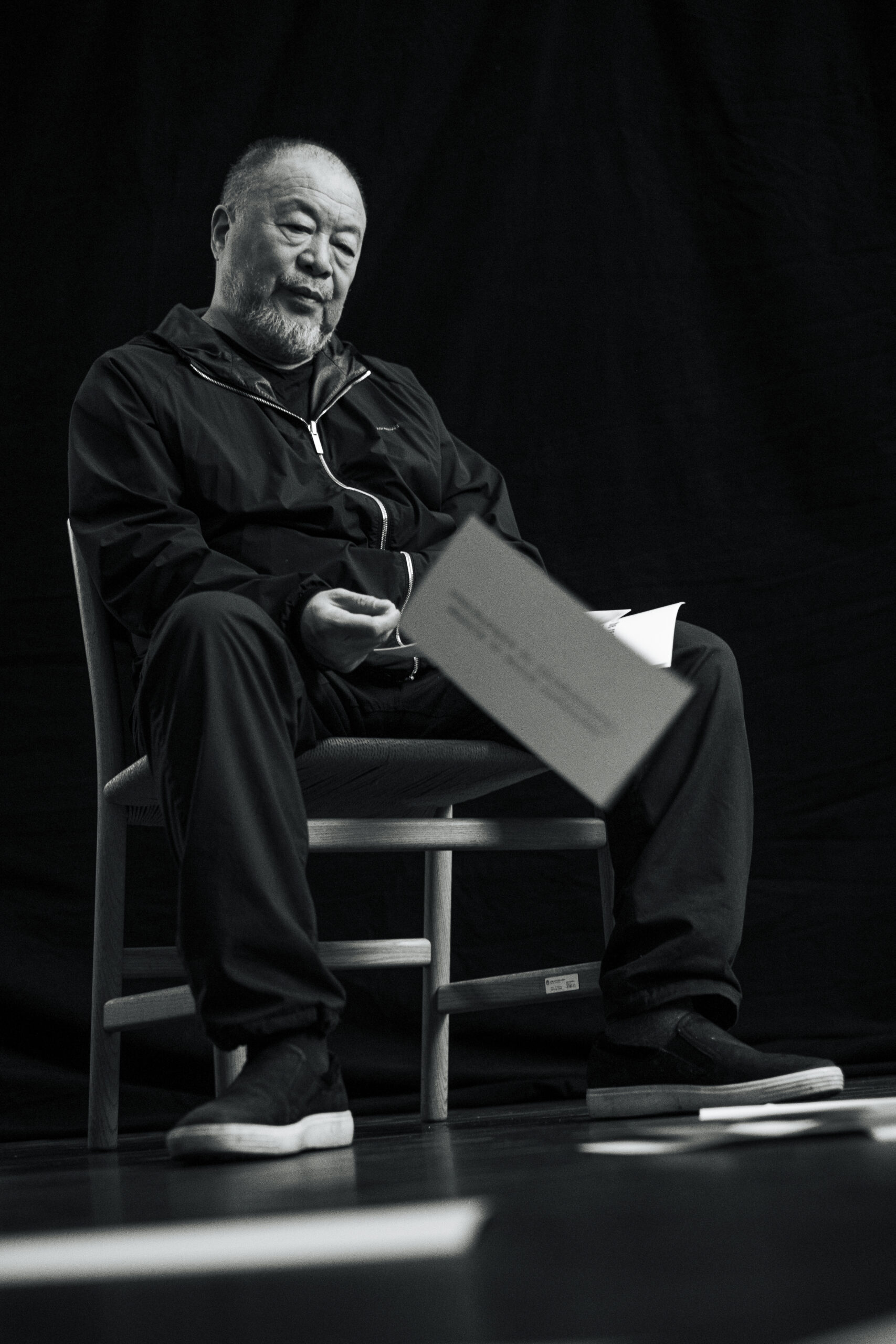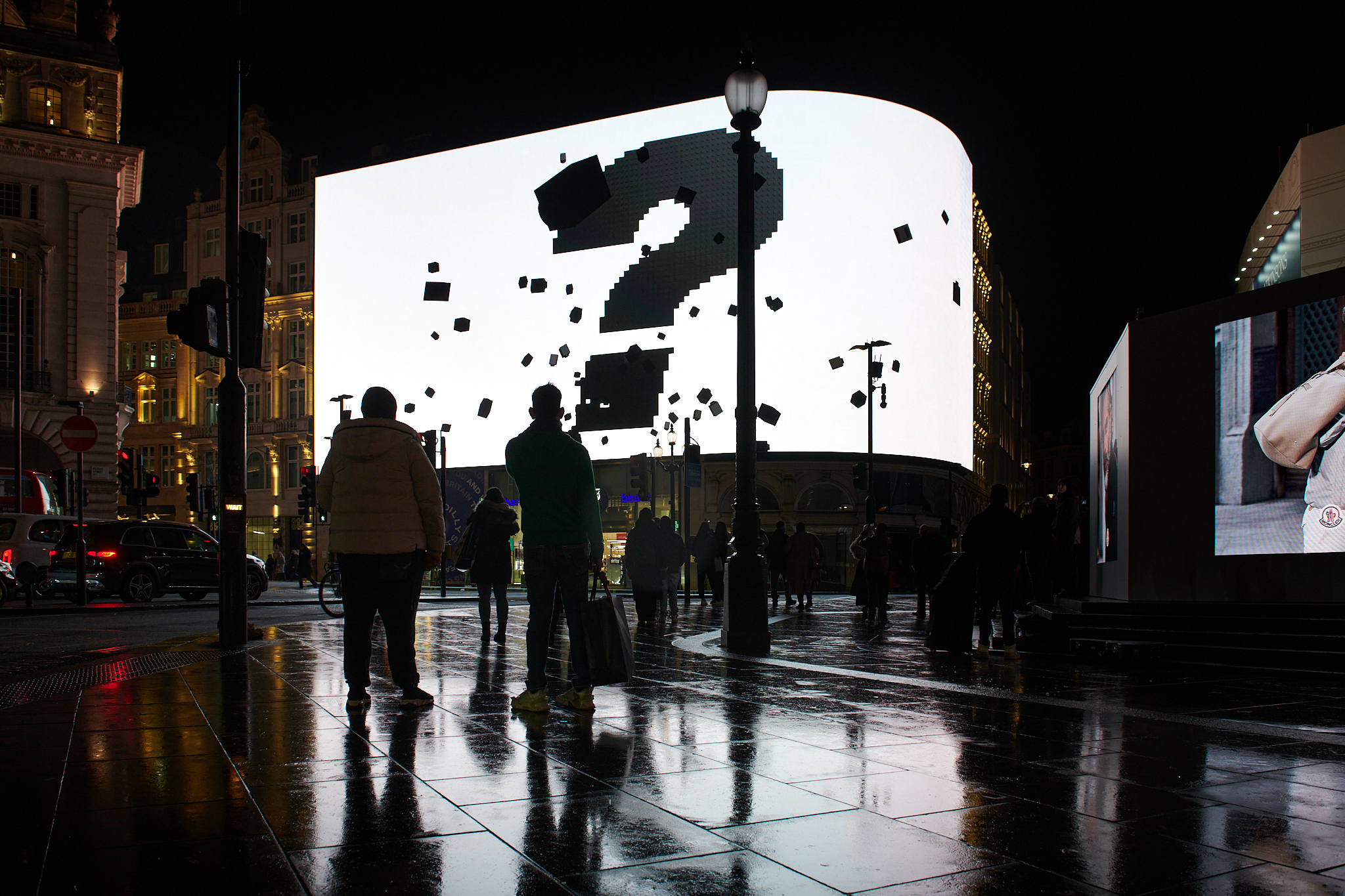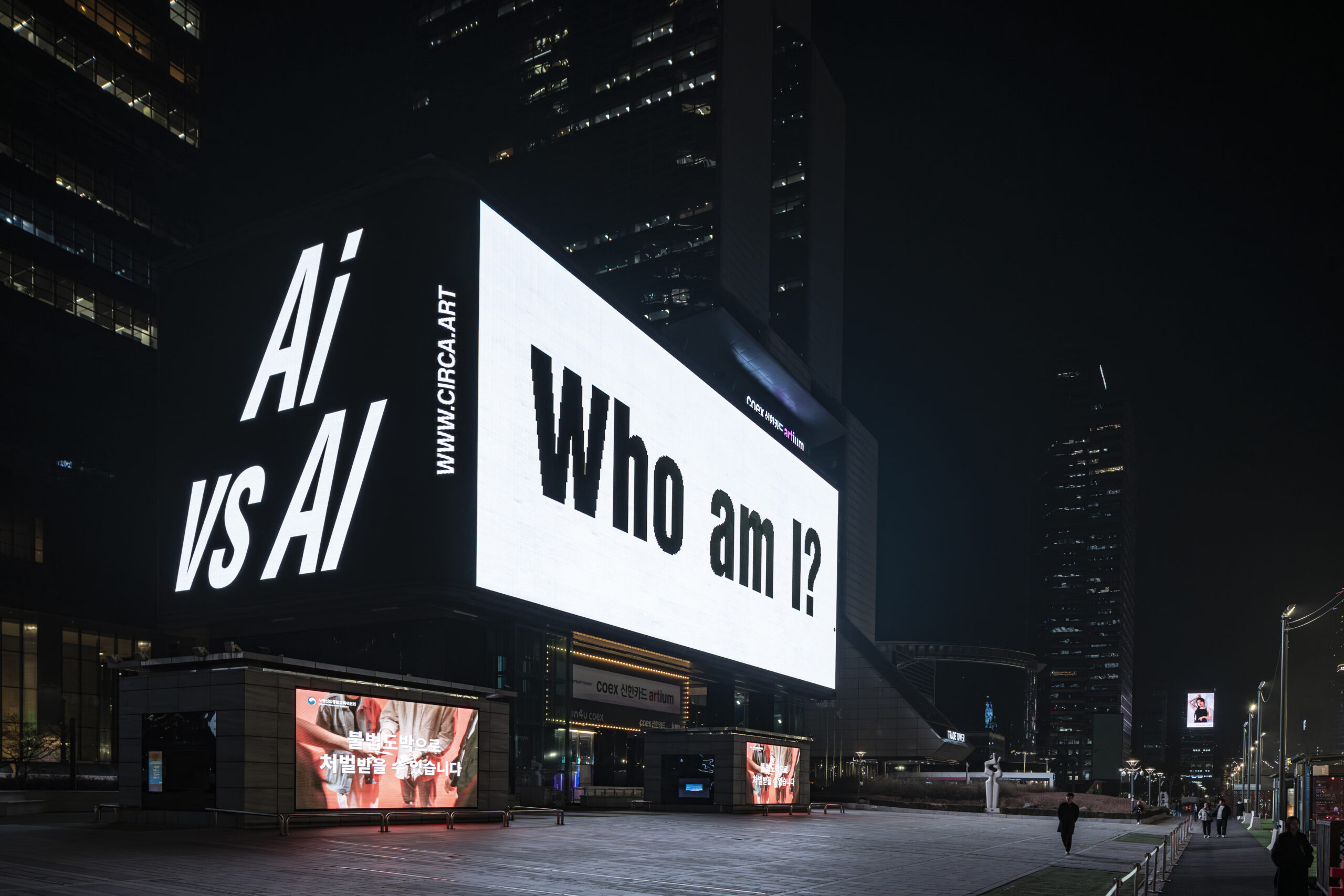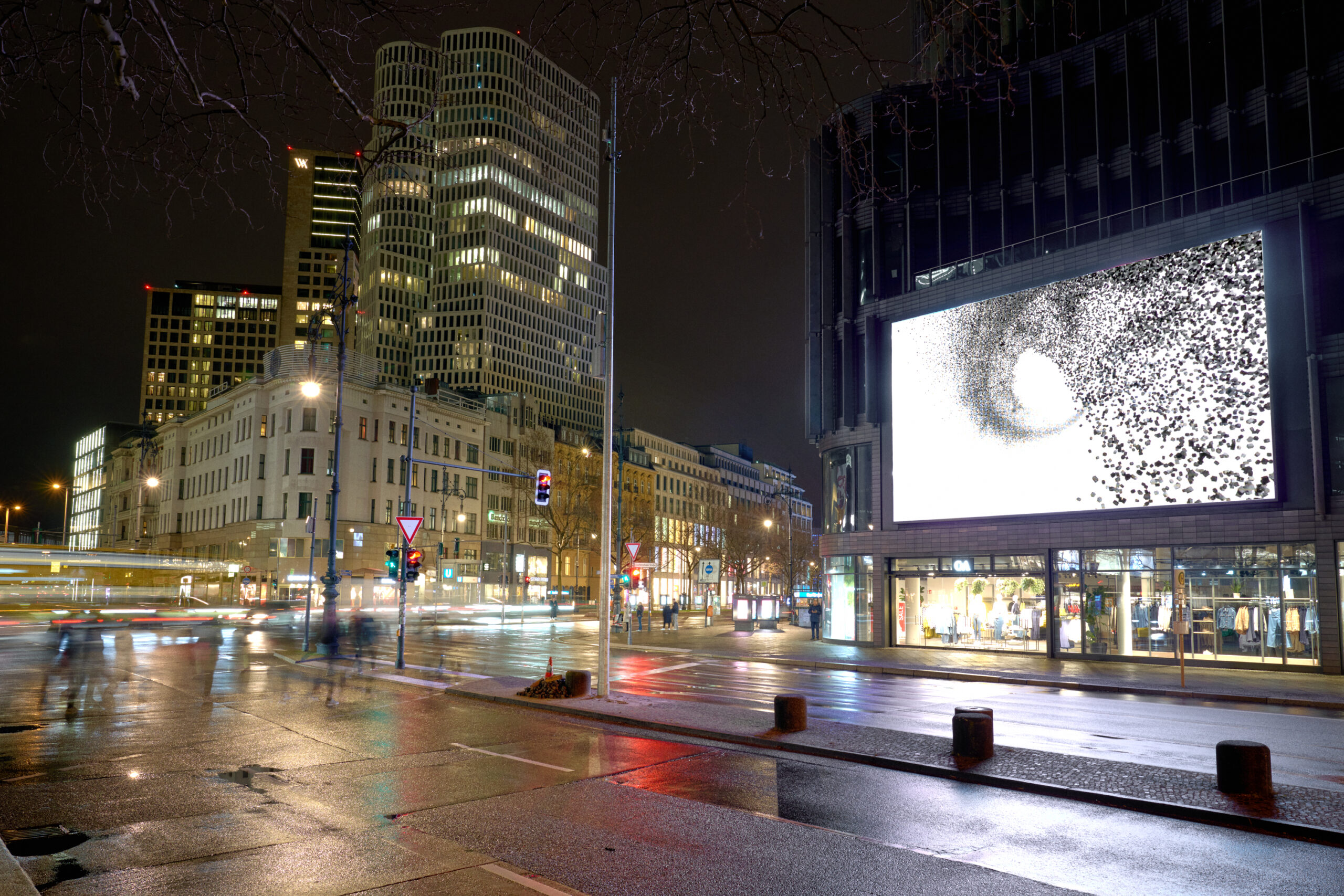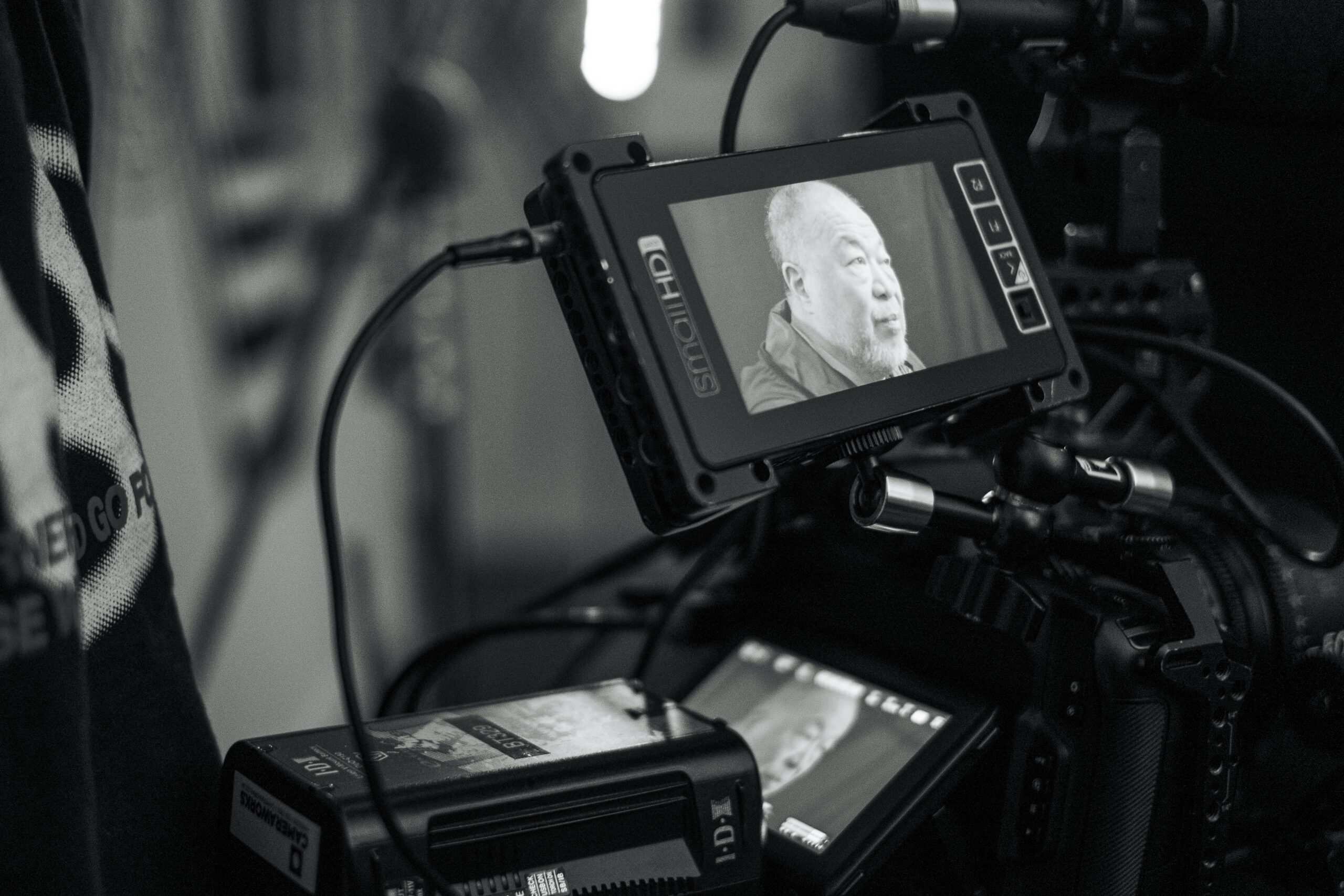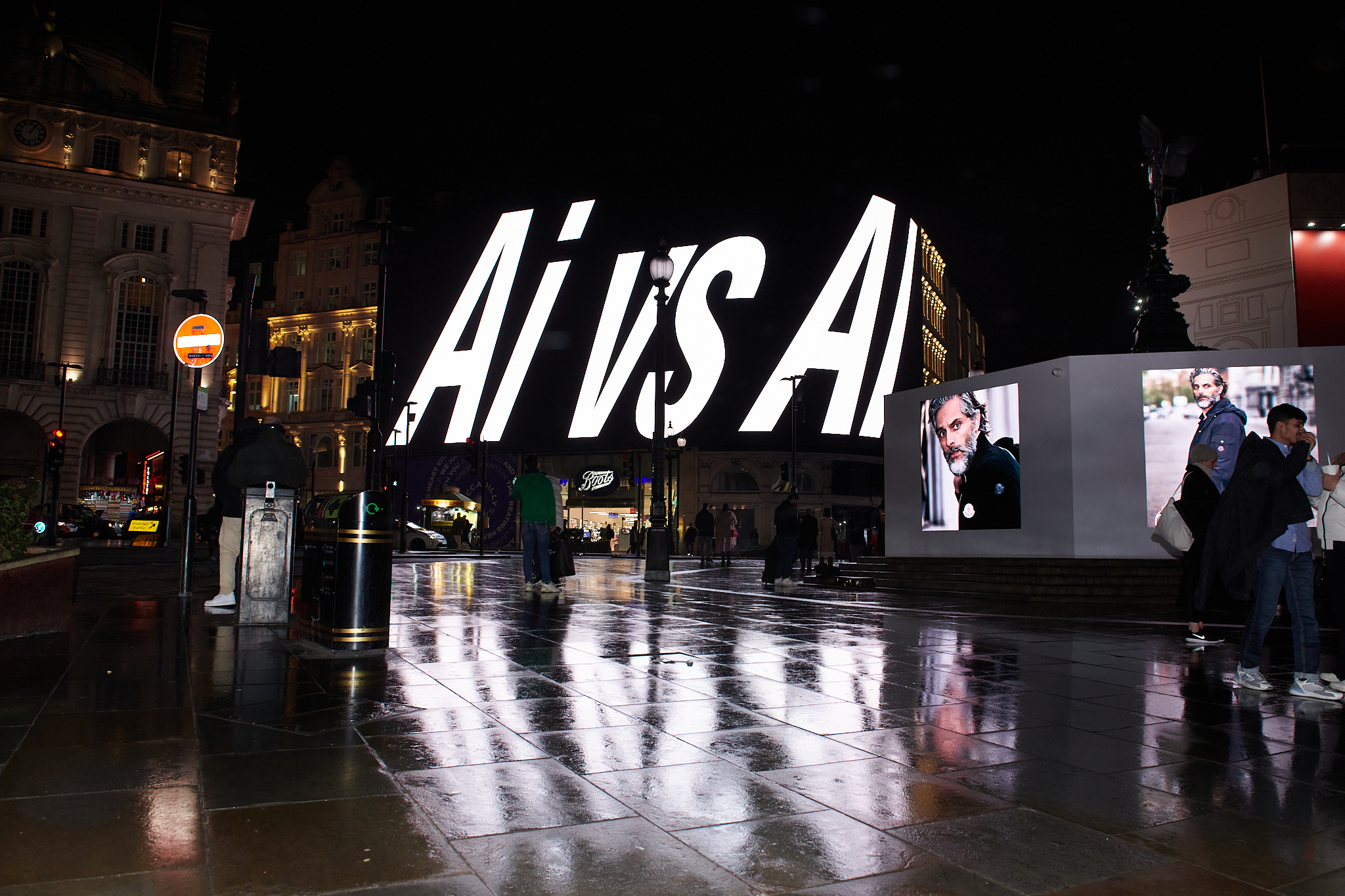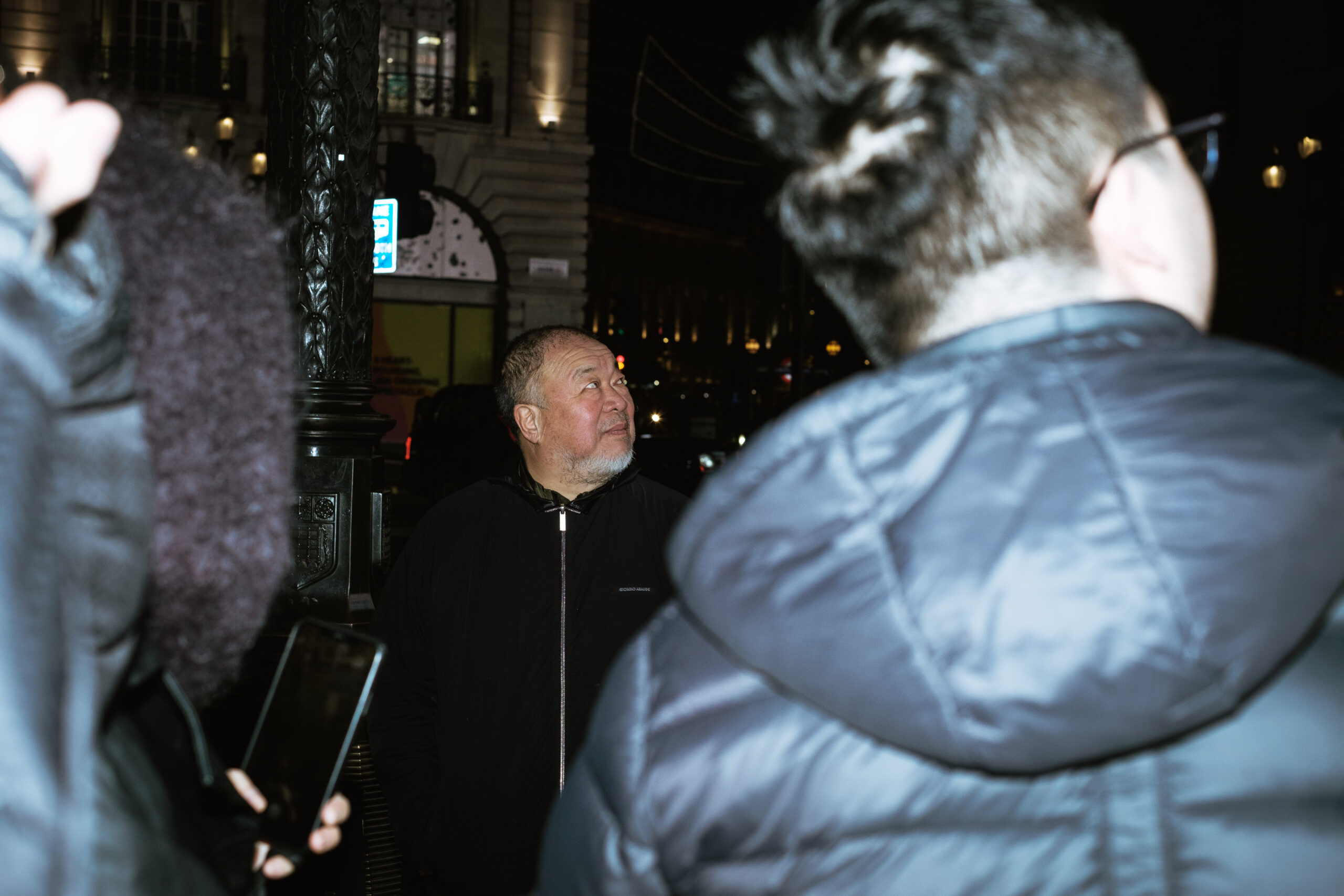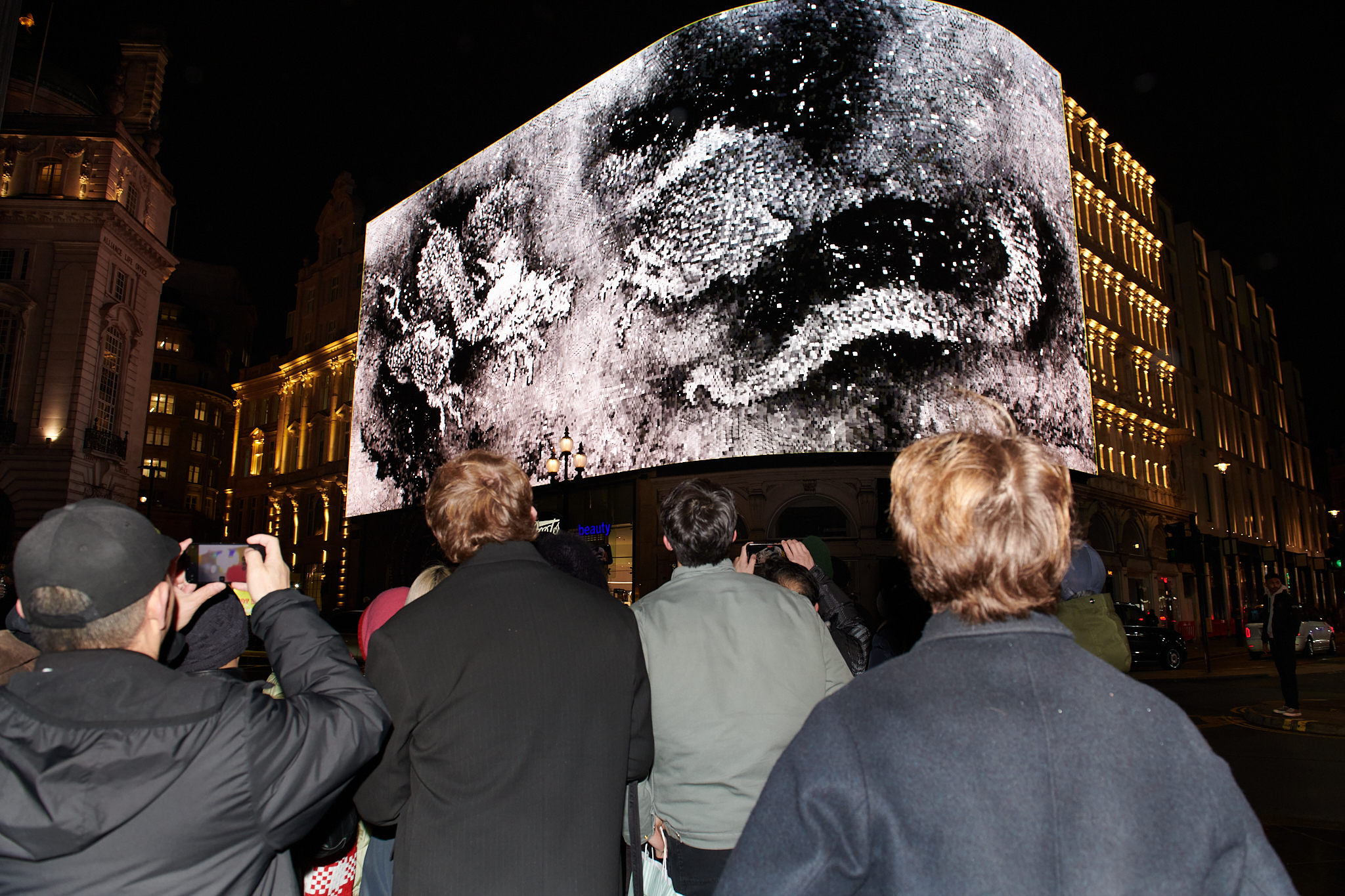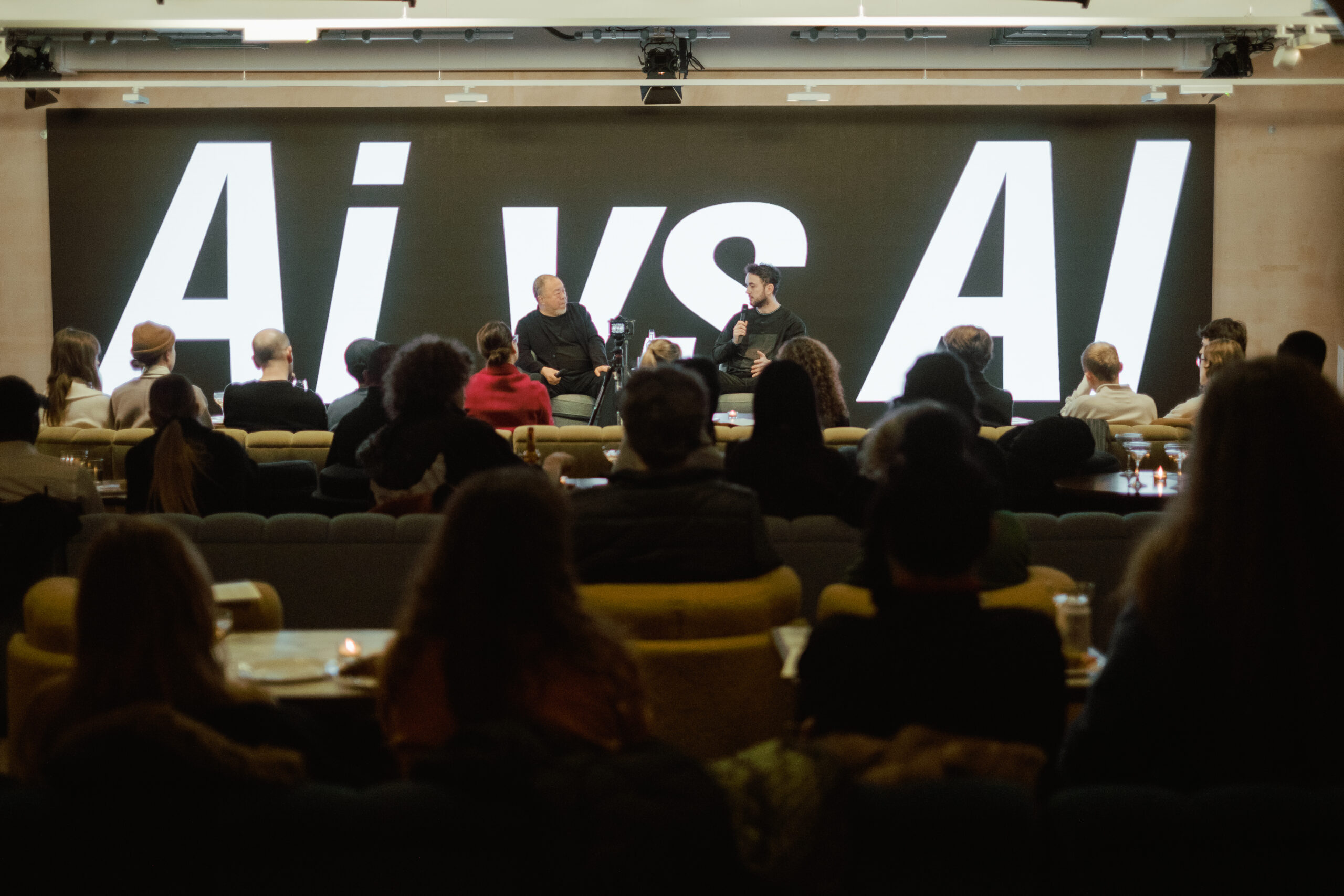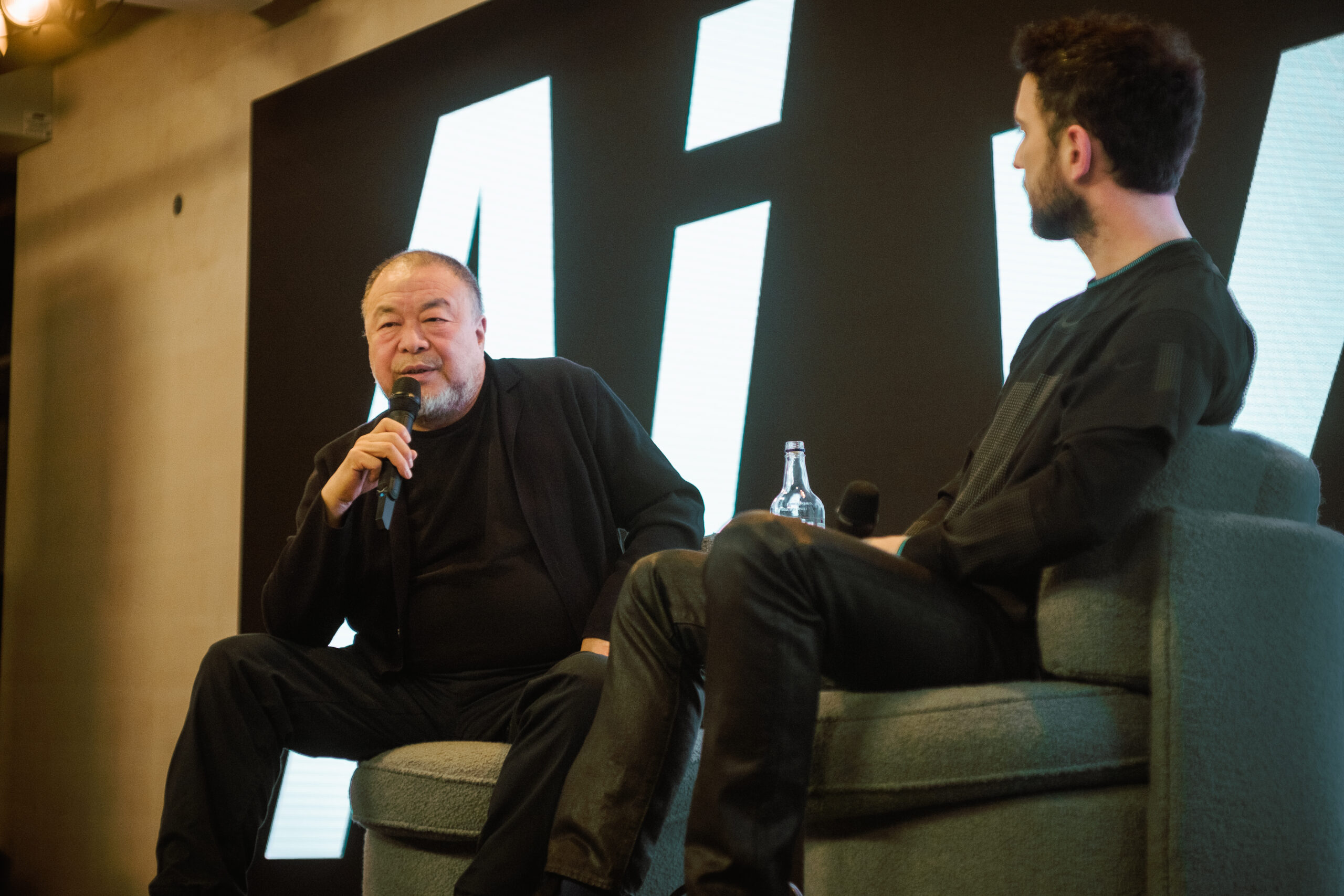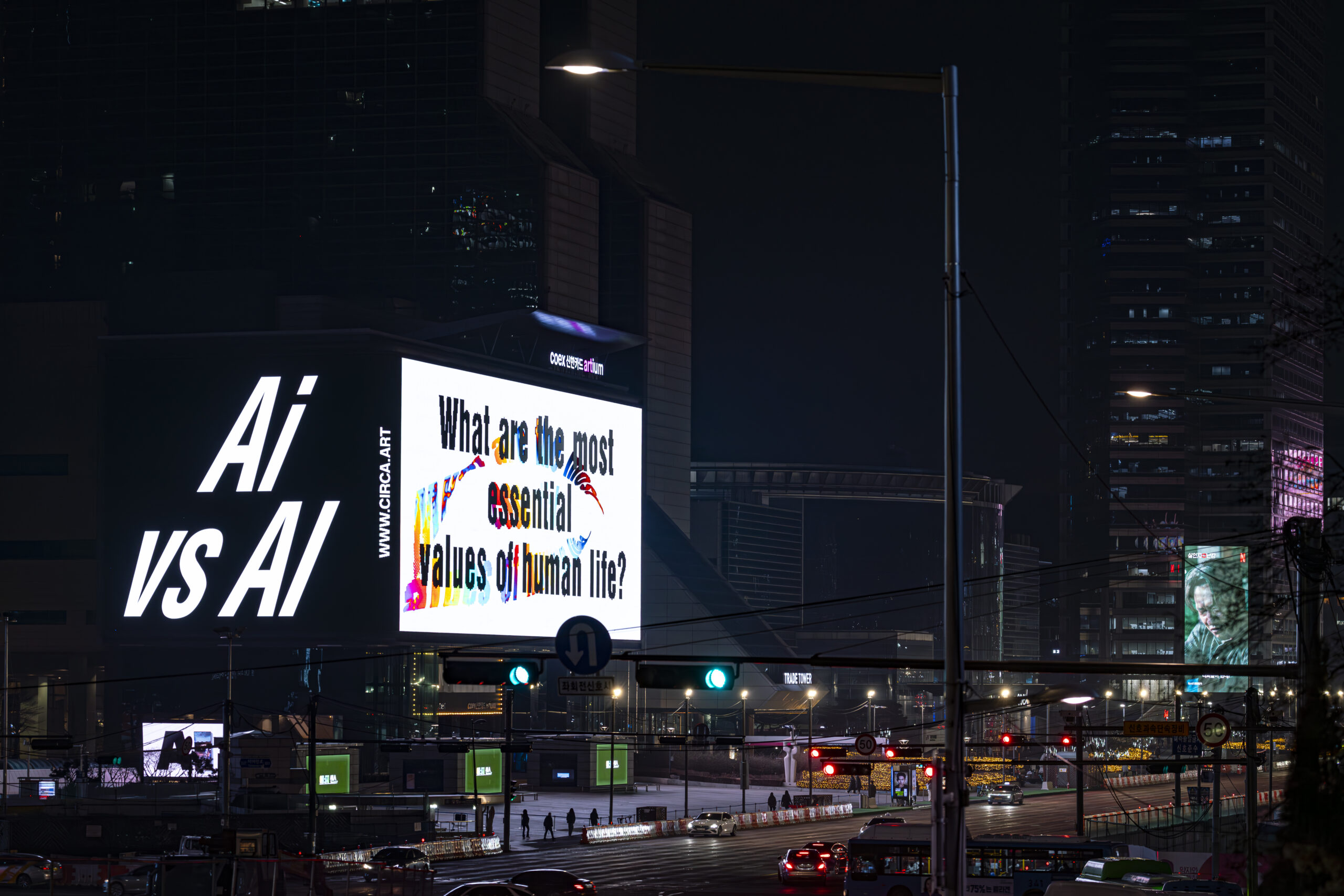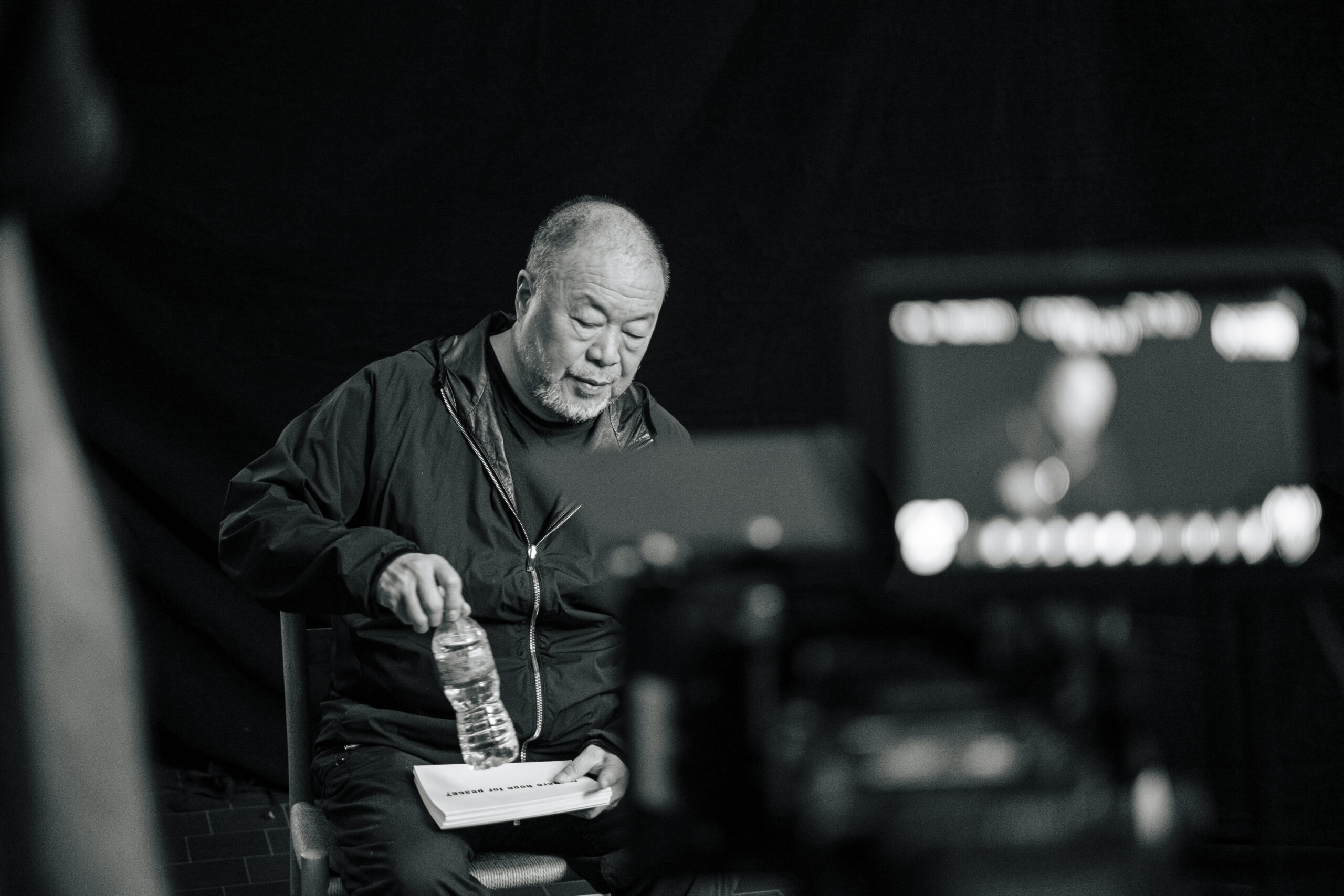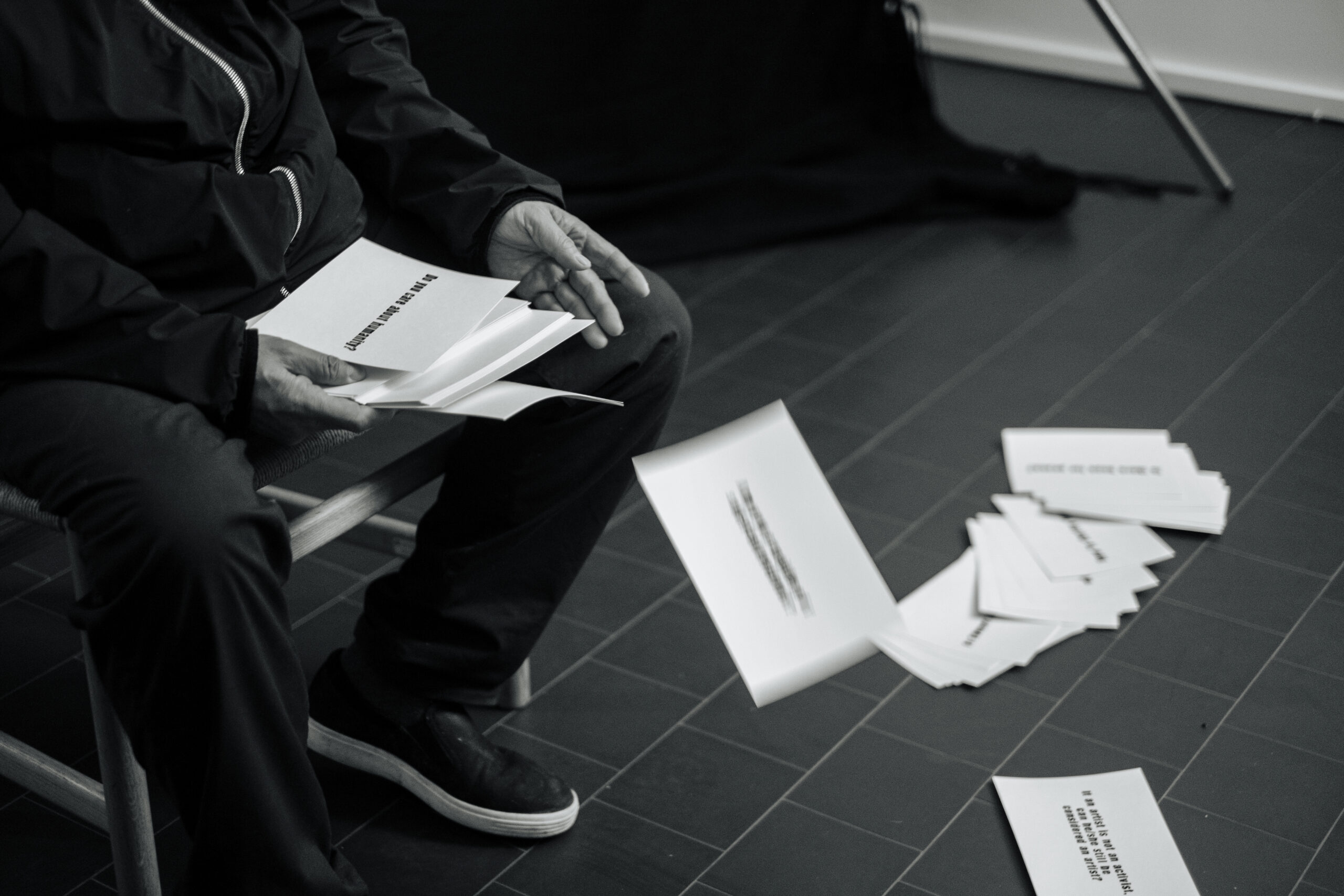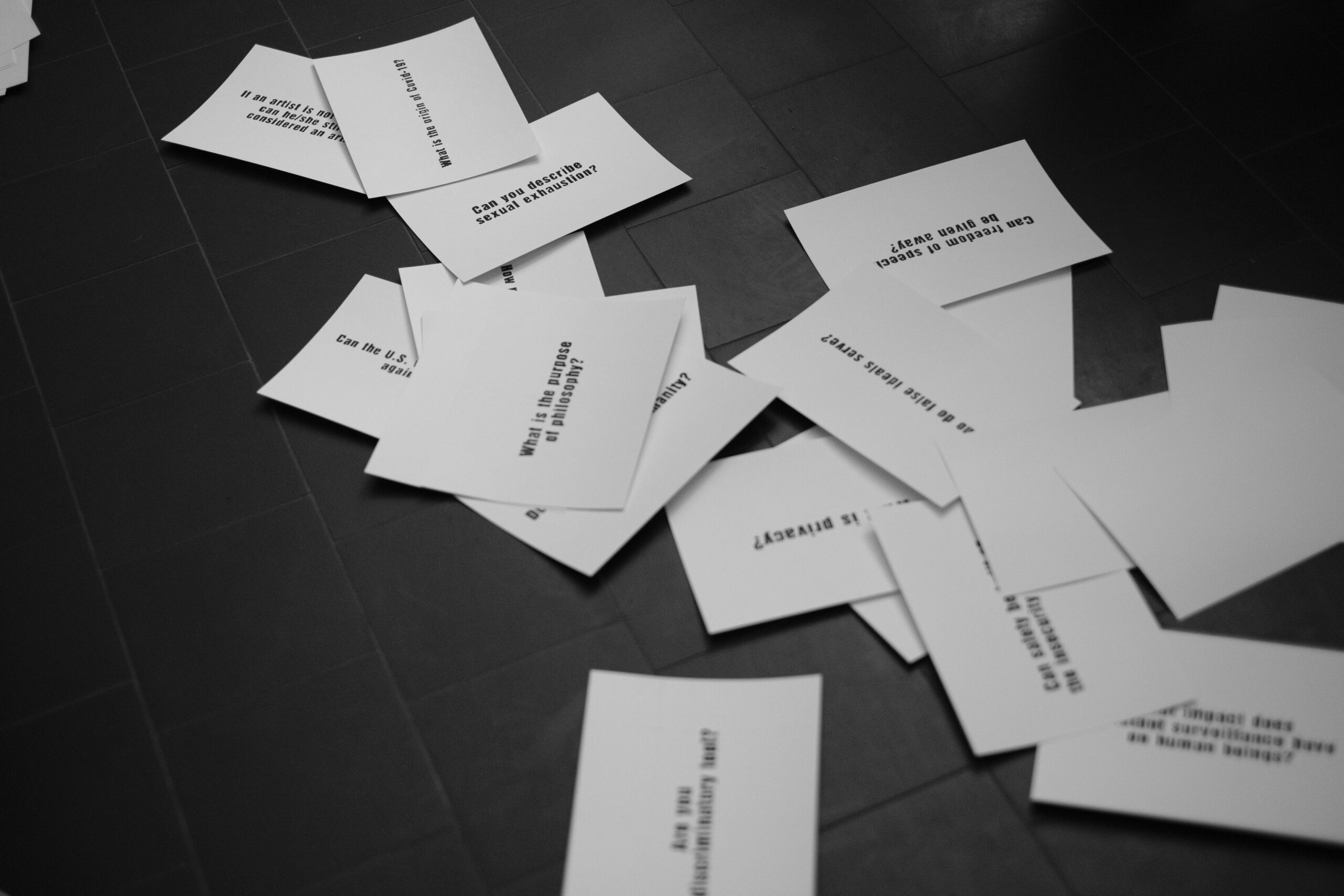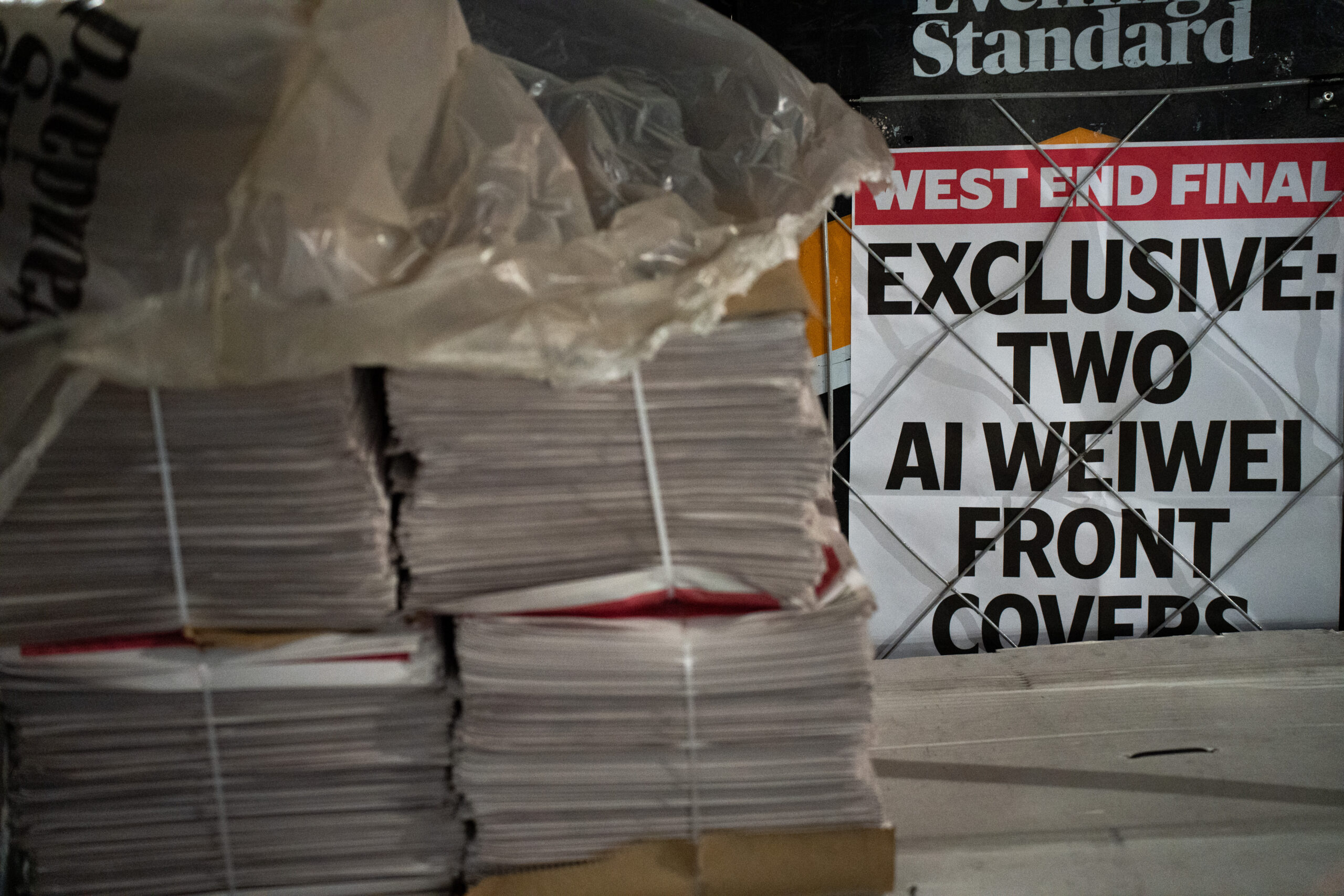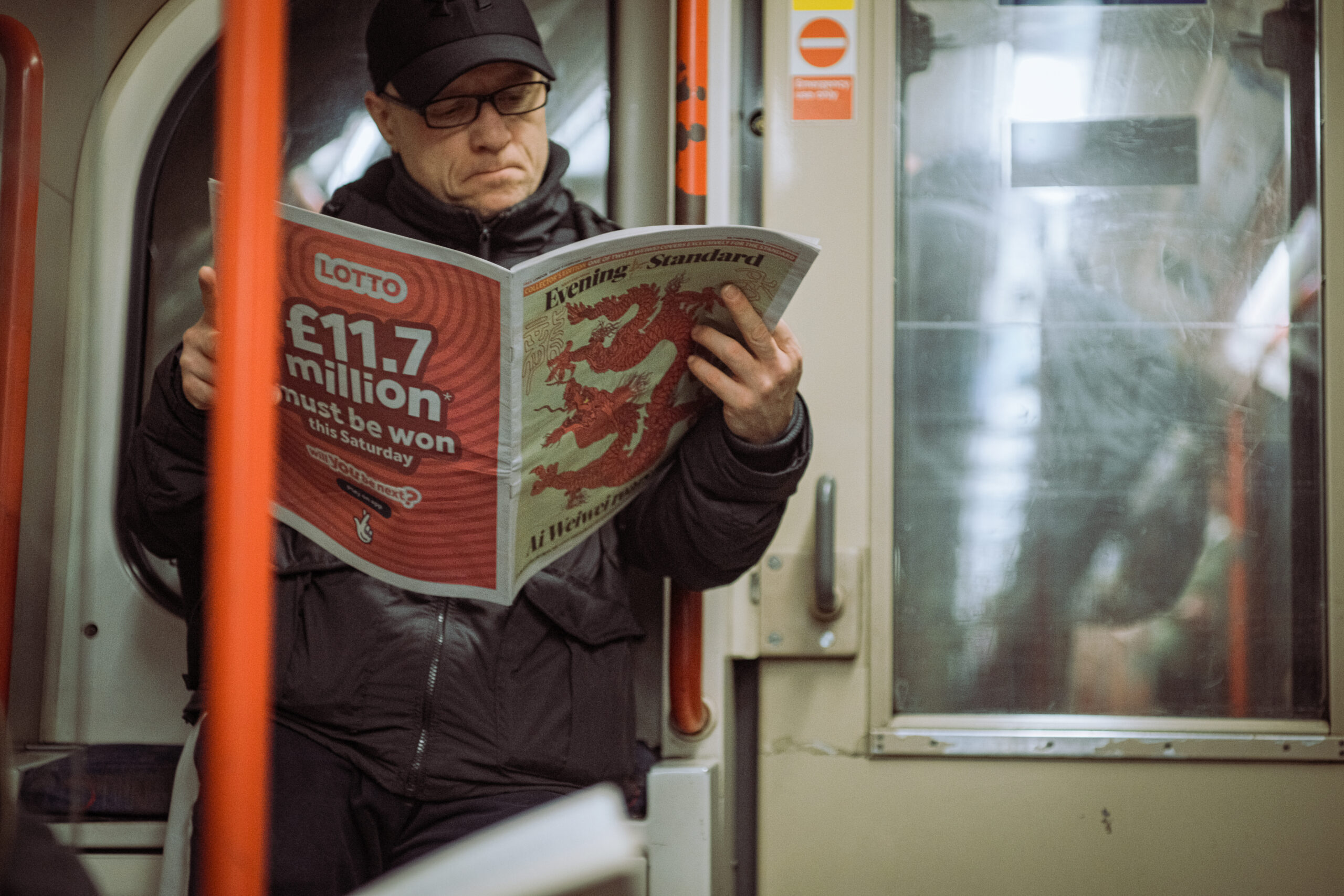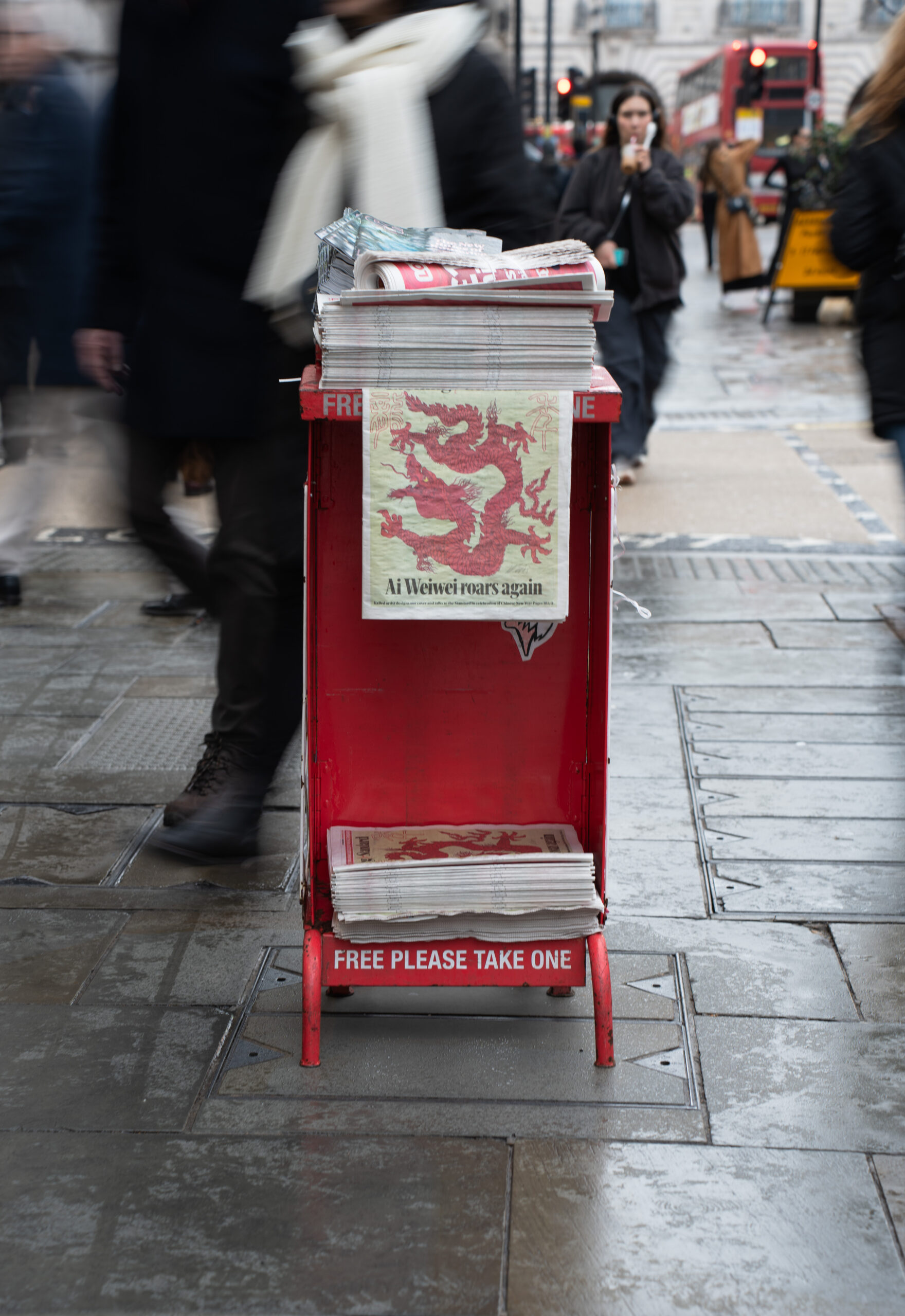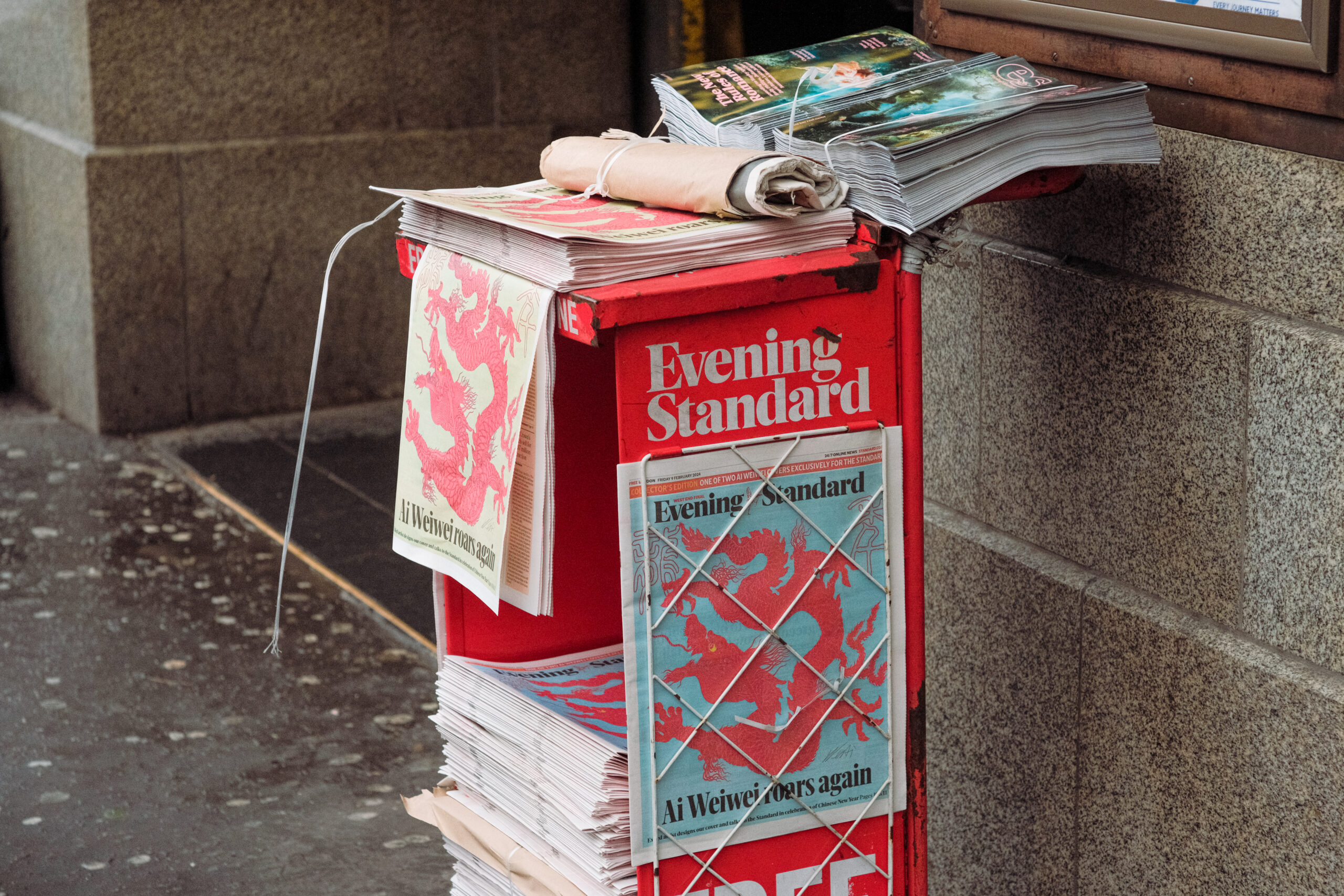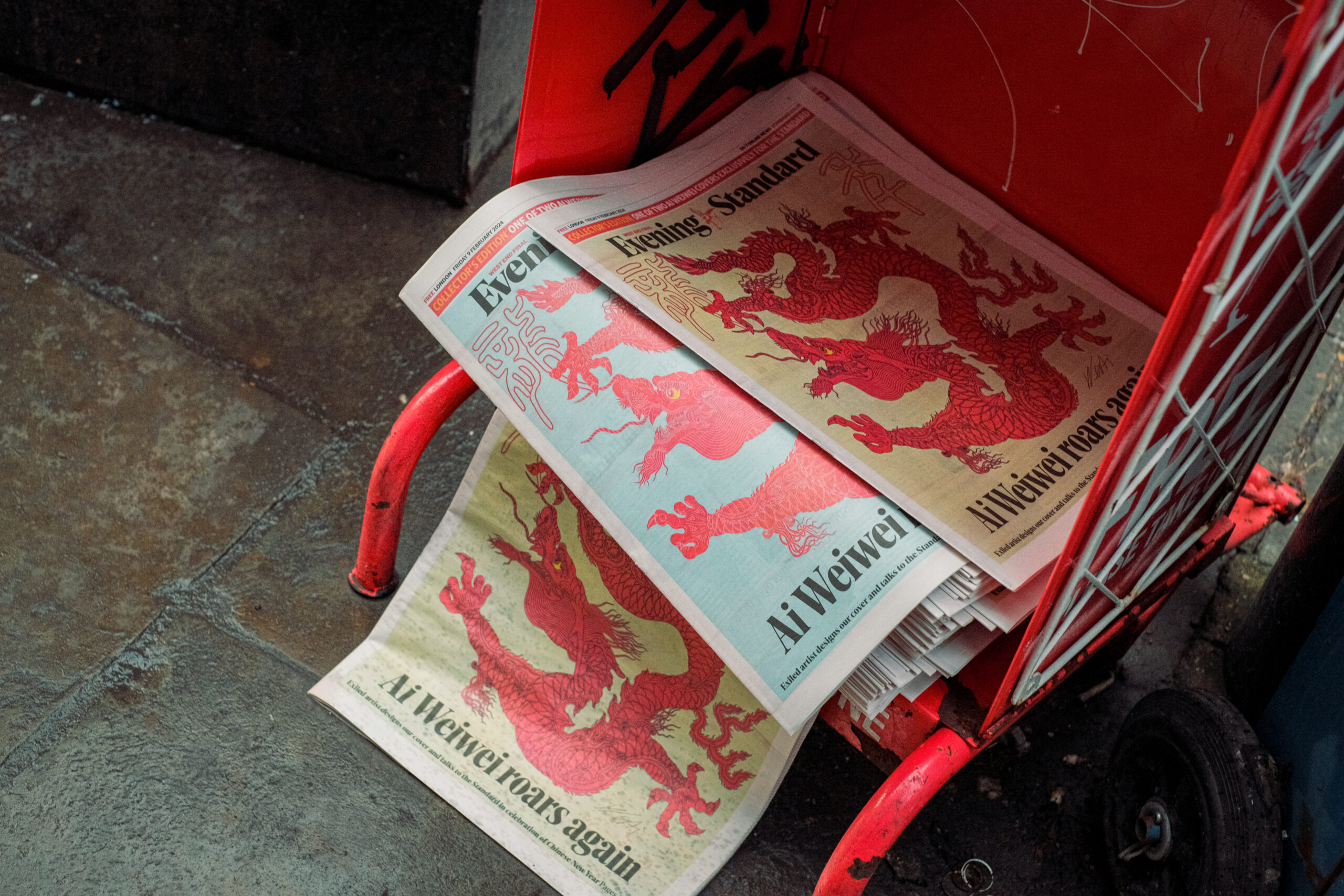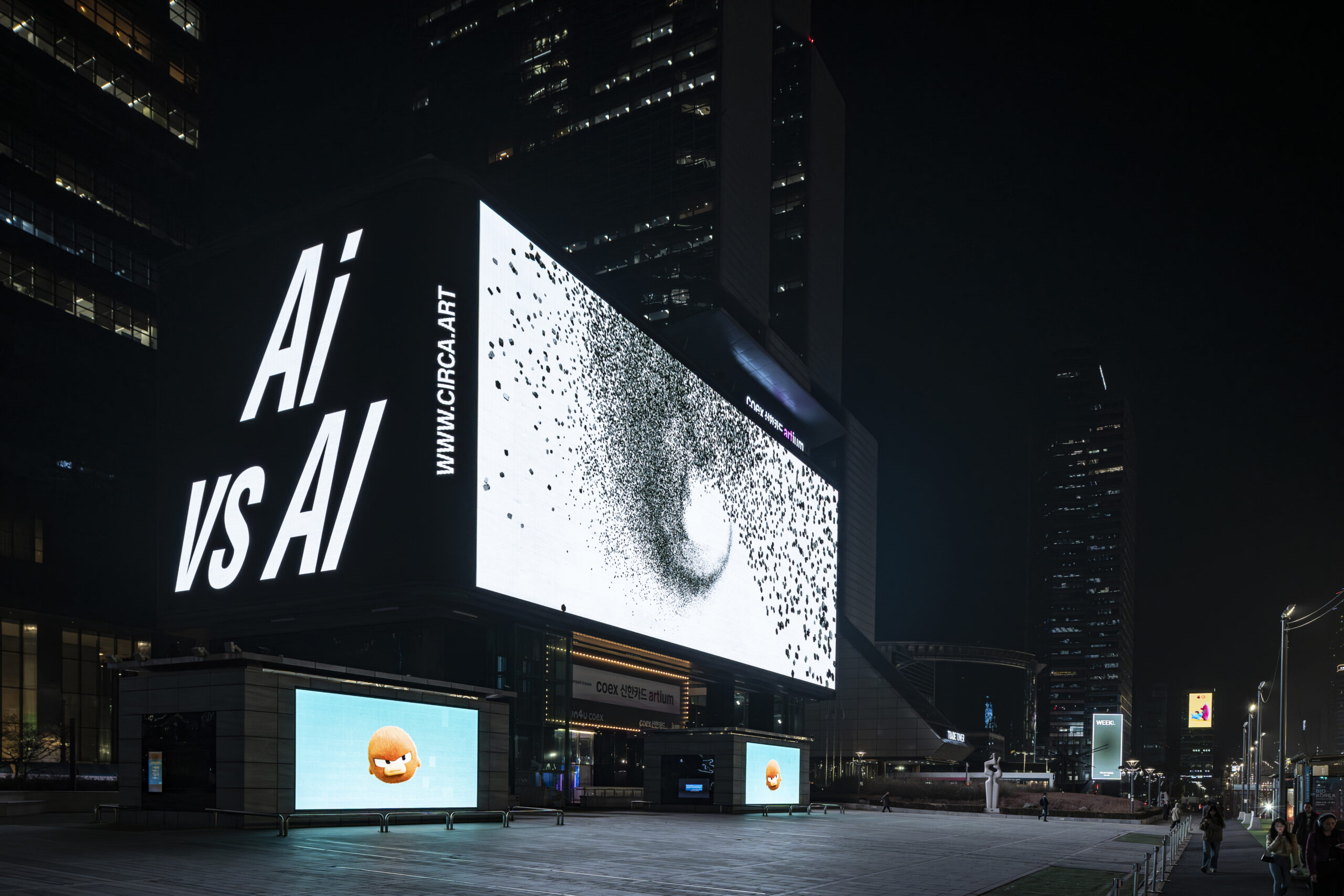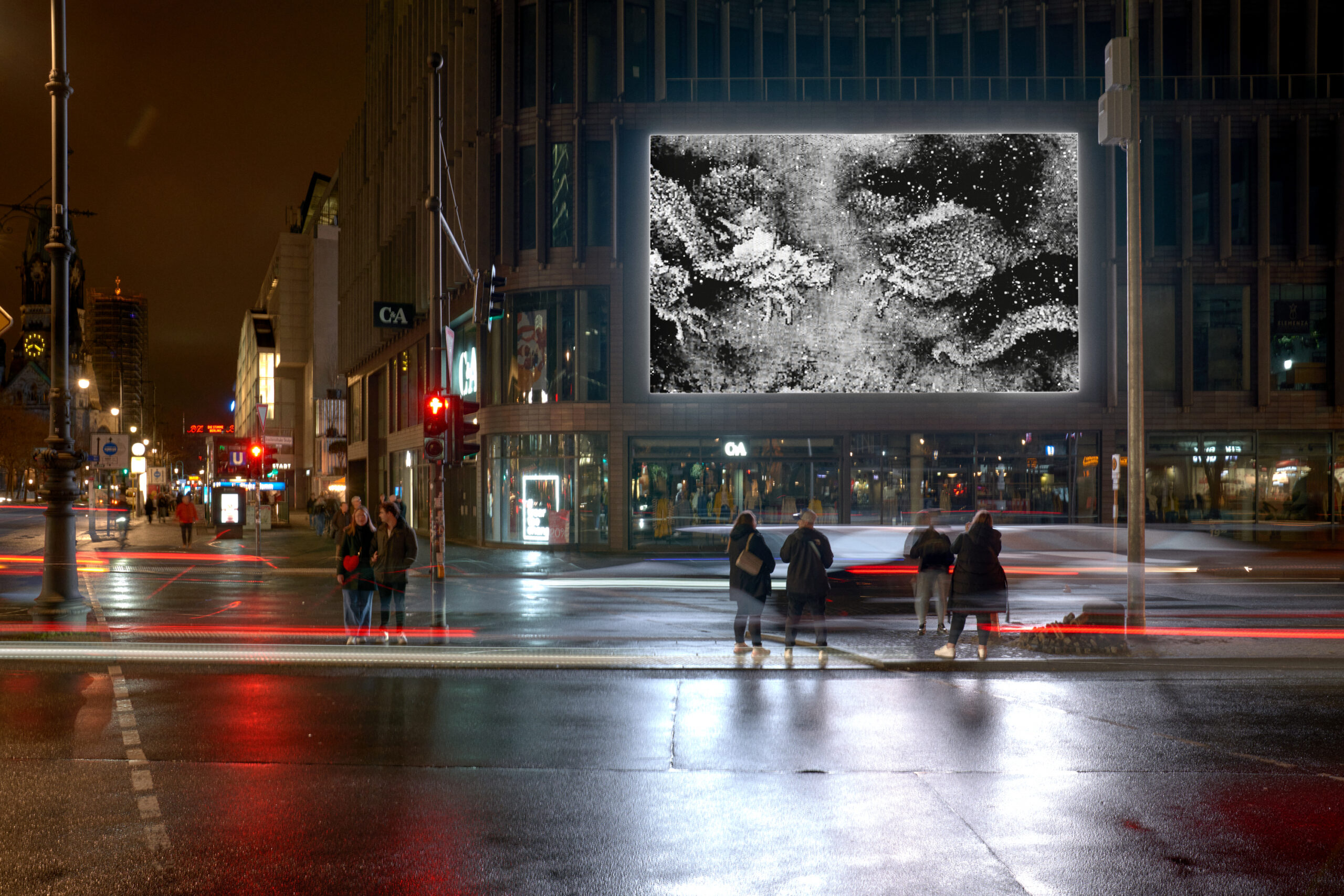CIRCA 20:24 - Season I
Ai Weiwei, Ai vs AI
11 January - 31 March
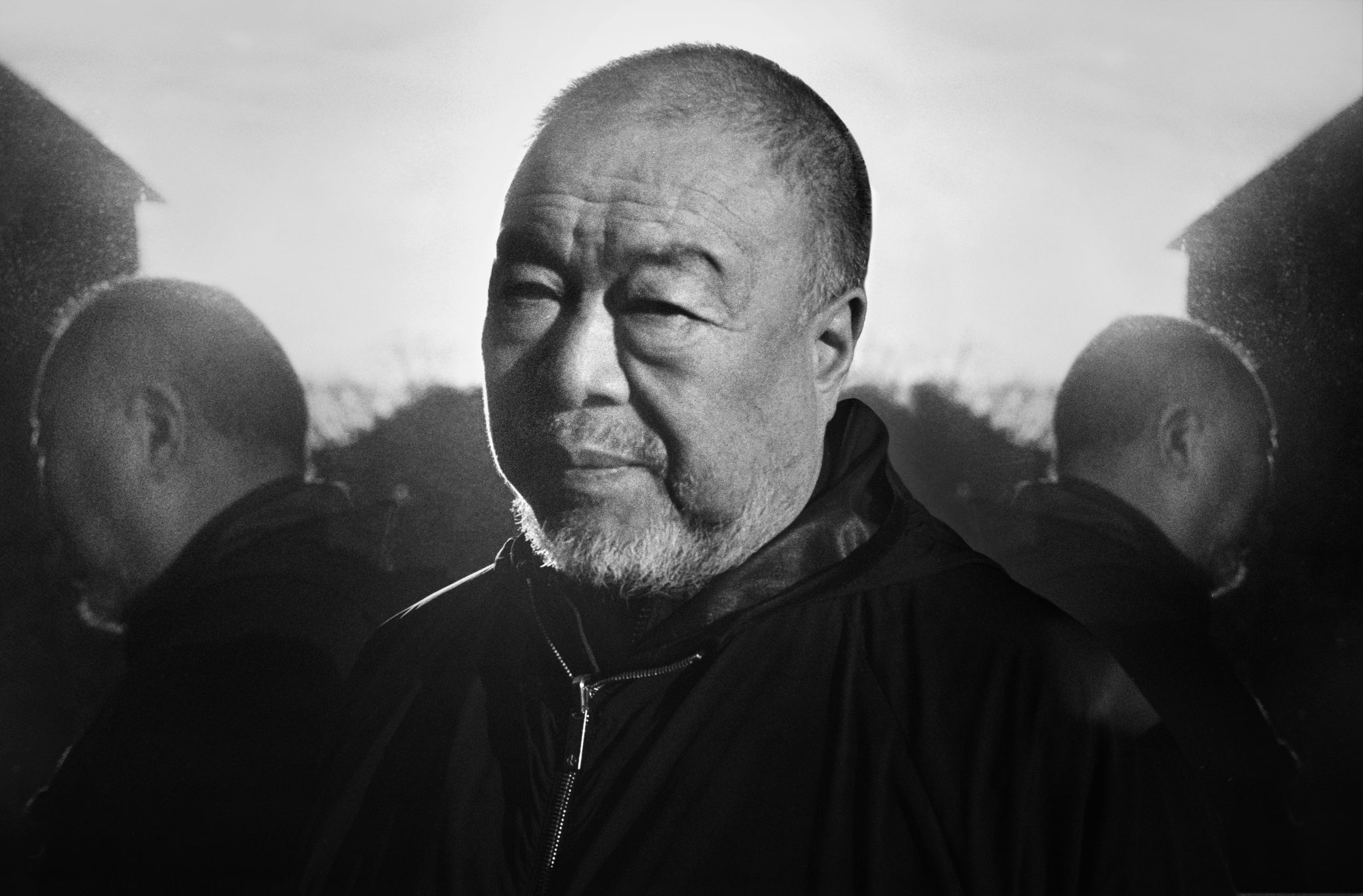
In our questions, more so than any answers, we can find the map of the human mind. We ask questions in search of learning and understanding, says Ai Weiwei, dividing ourselves from systems of Artificial Intelligence (AI) that lack interior identities. The questions we ask reveal our humanity and preoccupations, further distancing the human questioner from machine systems, which have no life story, no personhood from which any sincere question can arise.
Ai Weiwei’s 81 questions are both the continuation of a deep history of rational and spiritual inquiry as well as an innately idiosyncratic autoportrait. Ai vs AI is both an endeavour to reinvigorate the ancient convention of philosophical dialogues (from Socrates to The Enlightenment Salon) and a hand-drawn map of Ai’s own mind. Taking inspiration from both the Tiānwèn (‘The Heavenly Questions’) and Ai’s 81-day imprisonment, he explores how the act of questioning retains power today. “Authorities always know more than you, and they play a game of not telling you what they know,” says Ai. At all times, they tell you less than you should know. Like many who have lived under authoritarian systems, Ai still has no answer to fundamental and life-shaping questions: “Why was I jailed? Why was I released?” Such painful and complex histories are the foundations of our identities; the questions Ai asks today are asked by the person who has lived this life, drawing an irresolvable distinction between the human and machine. “Questions are important because they relate to our personal stories.”
For all humans – from newly inquisitive children to longest-lived adults – the one capacity and freedom we retain is the question, says Ai. Answers are routinely and blandly mass-produced in knowledge factories – including schools, religious institutions, nations and national myths – yet we often believe answers remain more important than questions. Questions are, in themselves, generative: in asking, we sketch out a terrain vague of human inquiry: for thousands of years, Chinese poets and thinkers asked what we might find walking on the surface of the moon, says Ai – this unknown fueling creativity and generating poetry and song. For this fertile landscape of imagination, the arrival of astronauts on the moon and the photography of dusty craters delivered by lunar exploration marked the destruction of creative terrain. “Expression has always been structured by words and by forms – as fairy tales and mythology,” says Ai. “We have to give a symbolic character to any expression.”
Still, rising systems of technology and knowledge production present new challenges to our ability to question the world. In an age of rising artificial intelligence – when humanity’s role in many forms of knowledge labour is reduced to asking the right questions to powerful systems of information processing – we are reminded that questions are far more than a means to an end, says Ai. “If humans will ever be liberated, it will be because we ask the right questions, not provide the right answers.”
Shop
CIRCA presents artist’s work on iconic public screens worldwide. Screenings occur daily at 20:25 local time (8:25 PM) throughout the year. While screen availability may vary per commission, Piccadilly Lights in London is our permanent home and always features the full programme.
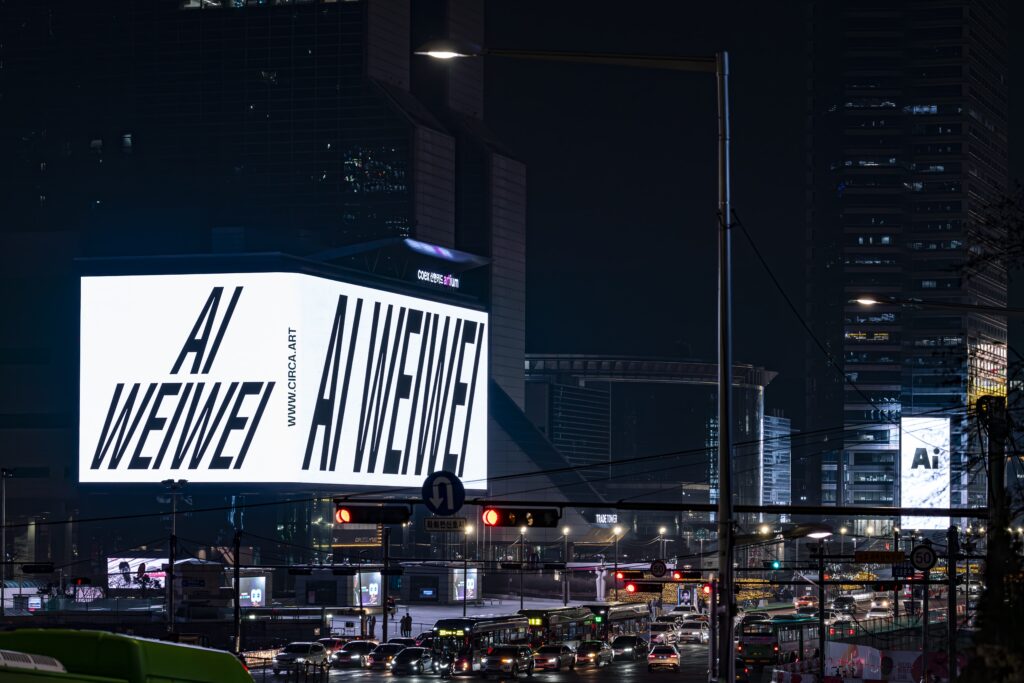
Seoul, COEX K-Pop Square
Experience Ai vs AI by Ai Weiwei every evening at 20:24 KST (11 January – 31 March 2024) on Seoul’s COEX K-Pop Square screen.
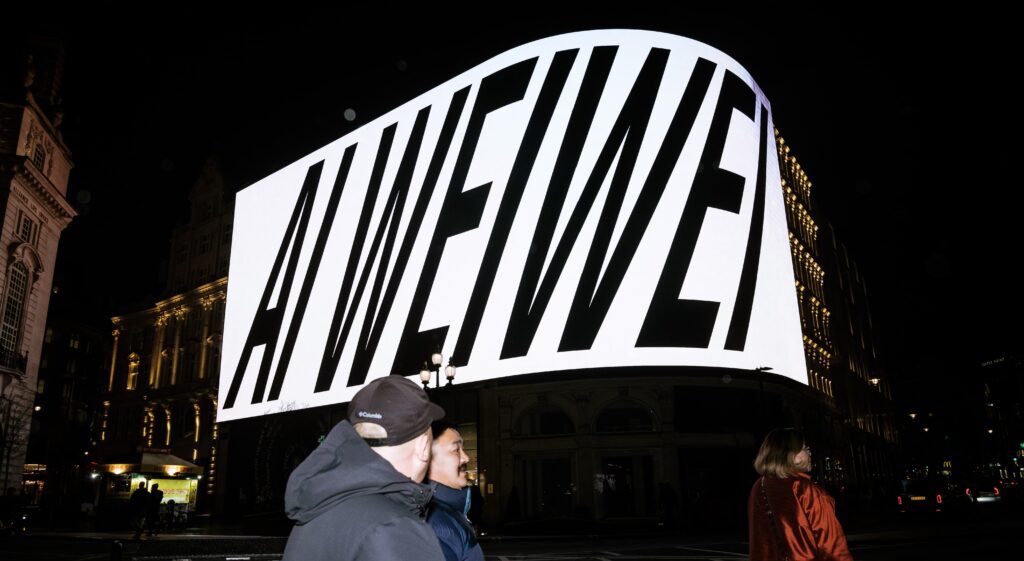
London, Piccadilly Lights
Experience Ai vs AI by Ai Weiwei every evening at 20:24 GMT (11 January – 31 March 2024) on the iconic Piccadilly Lights screen.
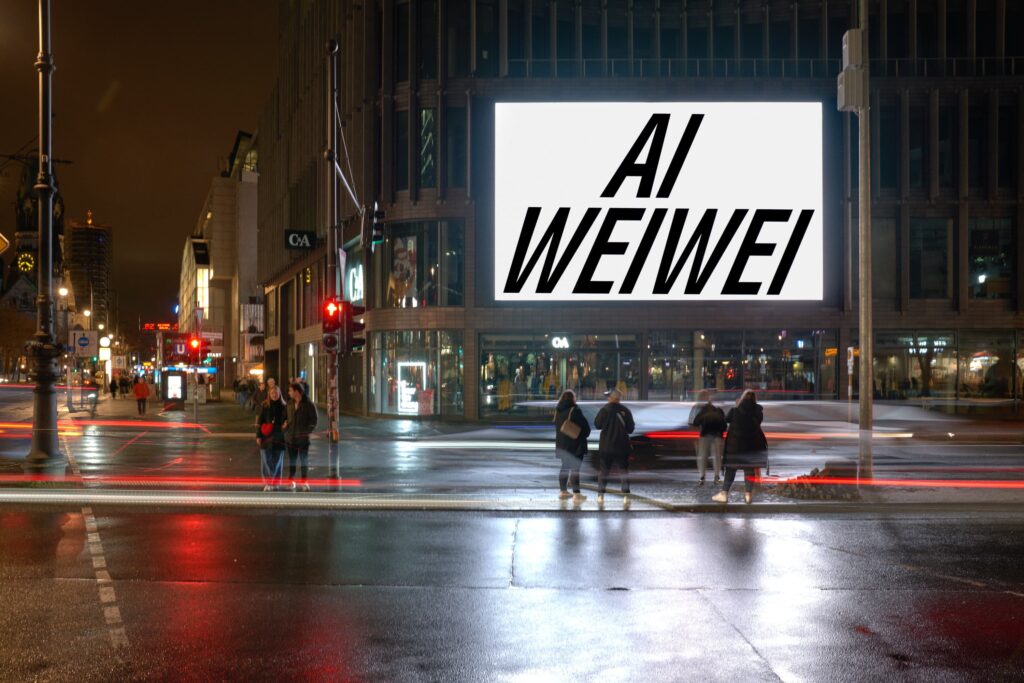
Berlin, Kurfürstendamm
Experience Ai vs AI by Ai Weiwei every evening at 20:24 CET (11 January – 31 March 2024) on Berlin’s Limes Kurfürstendamm screen.

Milan, Cadorna Square
Experience Ai vs AI by Ai Weiwei every evening at 20:24 CET (11 January – 31 March 2024) on Milan’s EssilorLuxottica screen.
Press
| Press Release | |
| Wallpaper* | |
| DesignBoom | |
| The Guardian | |
| ArtNet | |
| The Guardian | |
| Ocula |
81 Questions
Discover More
Gallery
Biography
Ai Weiwei

A global citizen, artist and thinker, Ai Weiwei moves between modes of production and investigation, subject to the direction and outcome of his research, whether into the Chinese earthquake of 2008 (for works such as Straight, 2008-12 and Remembering, 2009) or the worldwide plight of refugees and forced migrants (for Law of the Journey and his feature-length documentary, Human Flow, both 2017). From early iconoclastic positions in regards to authority and history, which included Dropping a Han Dynasty Urn and a series of middle-finger salutes to sites of power, Study of Perspective (both 1995), Ai’s production expanded to encompass architecture, public art and performance. Beyond concerns of form or protest, Ai now measures our existence in relation to economic, political, natural and social forces, uniting craftsmanship with conceptual creativity. Universal symbols of humanity and community, such as bicycles, flowers and trees, as well as the perennial problems of borders and conflicts are given renewed potency through installations, sculptures, films and photographs, while Ai continues to speak out publicly on issues he believes important. He is one of the leading cultural figures of his generation and serves as an example for free expression both in China and internationally.
